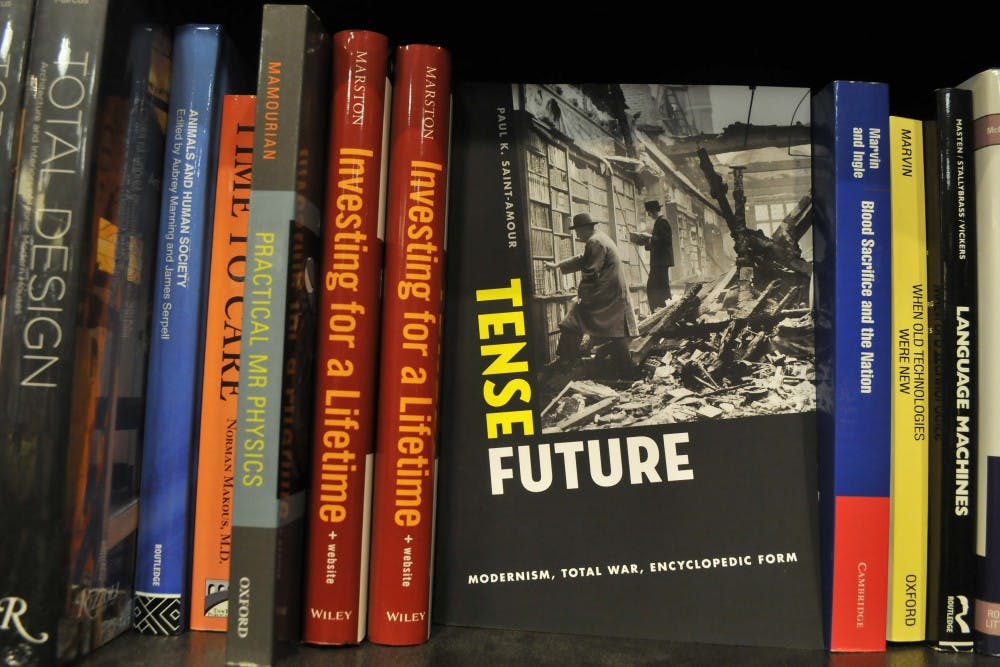
One Penn professor's latest book is winning multiple awards.
"Tense Future: Modernism, Total War, Encyclopedic Form" by Paul K. Saint-Amour has won both the 2016 Modernist Studies Book Prize and the Modern Language Association’s Matei Calinescu Prize.
"Tense Future" explores the role total war has played throughout the 20th century and argues that both the experience and the expectation of trauma can significantly injure non-combatants.
Inspired by his own experiences as a teenager in the 1980s, Saint-Amour became interested in the emerging psychological and literary field of trauma studies in the 1990s. He began to investigate how the anticipation of trauma could affect an individual.
“In a way, I think people who grew up in the shadow of nuclear weapons were experiencing a trauma of a future that seemed to be foreclosed,” Saint-Amour said. “A lot of people who were children or teenagers during the Cold War, were not sure that they would live to see their adulthood.”
A professor of English, Saint-Amour received his BA from Yale University and his Ph.D. from Stanford University. He taught at Pomona College for a decade before coming to Penn, and sits on the editorial board of Authorship, an open-access journal. He previously wrote "The Copywrights: Intellectual Property and the Literary Imagination," which won the 2003 MLA Prize for a First Book. He has been a fellow at the Center for the Humanities at Cornell, the National Humanities Center, and the Stanford Humanities Center. He also co-edits the Modernist Latitudes series (Columbia University Press) with Jessica Berman.
Saint-Amour focused his investigation on the inter-war period, describing it “as a pre-war period, so that you have the memory of one terrible compulsive war, but also you’re anticipating a worse sequel.”
Saint-Amour discussed how infamous authors, such as Virginia Wolfe and James Joyce, represented and confronted the impending prospect of war in their literary works of the 1920s.
“These novels that we tend to read as these big, modernist masterpieces, that aren’t really about war, that are maybe more about urban life or alienation or capitalism or modernity, are also works of strenuous pacifism. In that, in this period, war is getting more and more total.”
While many would consider the inter-war period to have ended long ago, Saint-Amour argues the subtle ways in which the condition of total war and the effects of the anticipation of trauma has extended into the modern age.
“Although we don’t think so much in terms of world wars anymore, our idea of what a sovereign government has a right to do is very much about the use of military force. So in a way, for a government to have a monopoly on violence, to wield the power of the state, it has to be able both to claim the legitimacy of past wars and to claim the right to fight future wars,” he said. “In some way that idea of an inter-war period is still with us.”
The Modernist Book Prize is awarded annually to a book that is judged as having “made the most significant contribution to modernist studies,” according to the MSA website.
In a press release, the MLA selection committee described "Tense Future" as a book “whose scope of mind and range of intellectual ambition speaks to the best of what literary criticism is and should be.”
The Daily Pennsylvanian is an independent, student-run newspaper. Please consider making a donation to support the coverage that shapes the University. Your generosity ensures a future of strong journalism at Penn.
Donate




